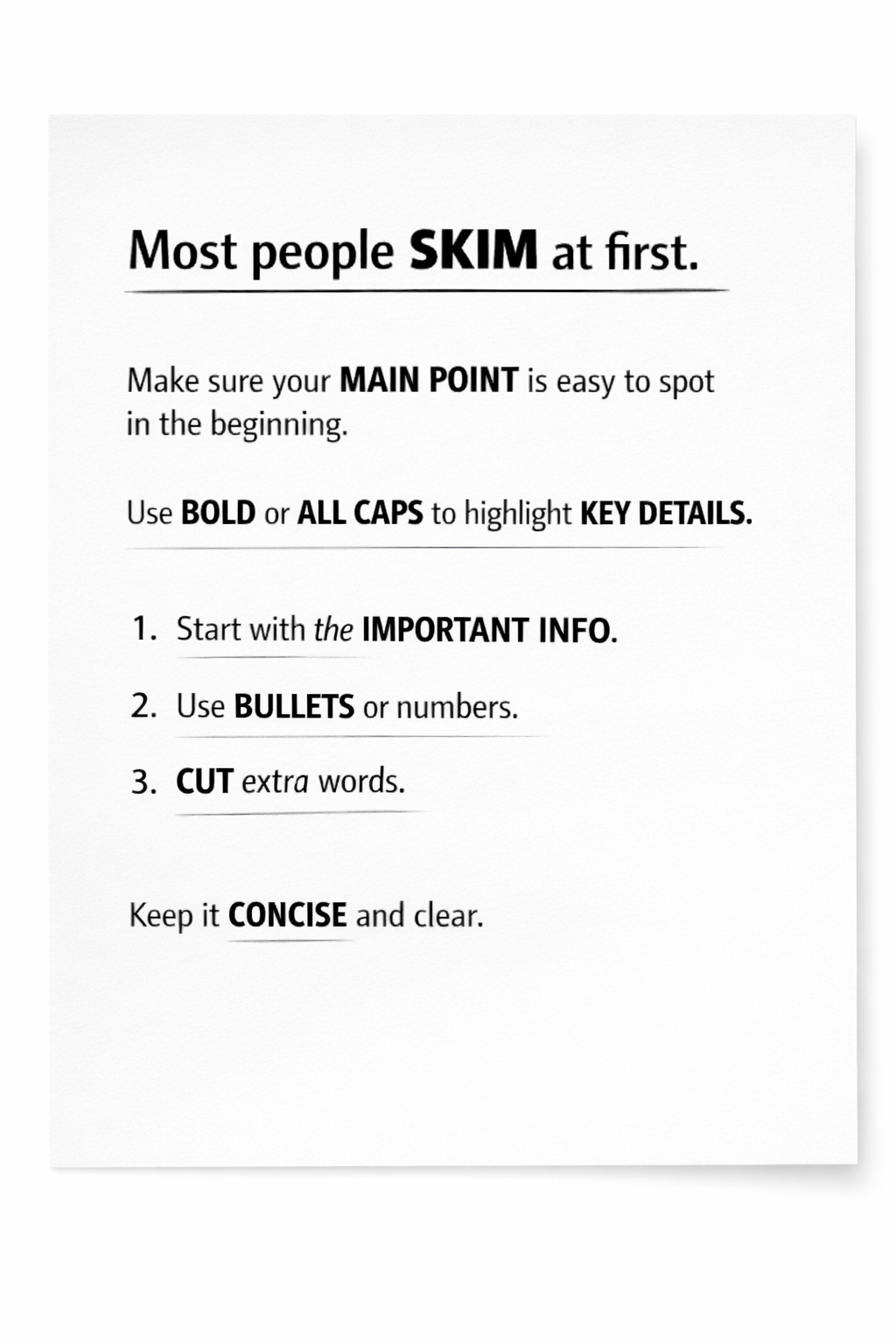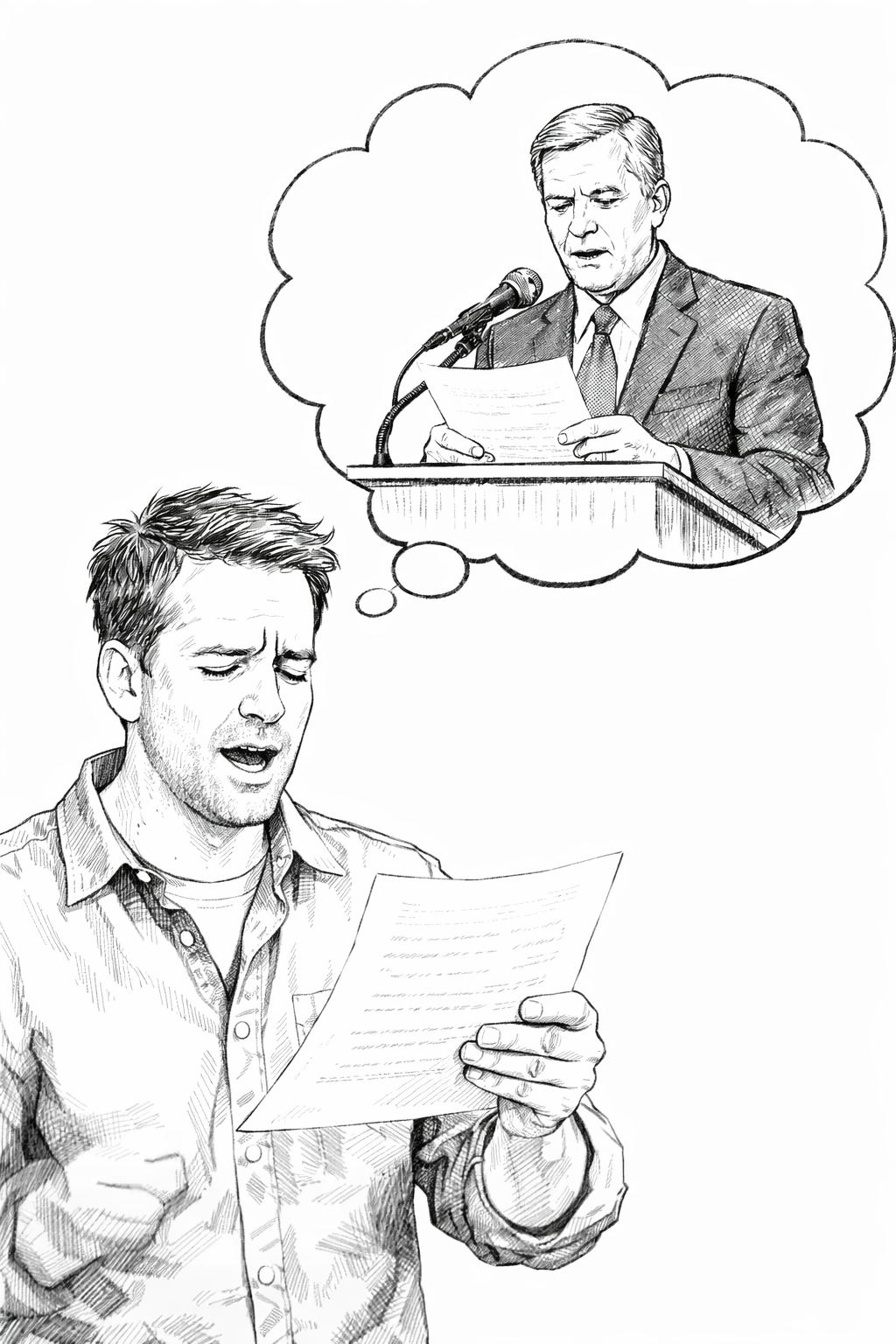Nib #13: Biden’s Botched SOTU, Part 3: Show, Don’t Tell
Nib #13: Biden’s Botched SOTU, Part 3: Show, Don’t Tell
Writing perorations — the typically uplifting, closing sections of speeches — is hard. For State of the Union Addresses — with so many chefs (of varying skill) in the kitchen — history suggests it’s nearly impossible.
So, that President Joe Biden’s 2024 SOTU ended poorly is neither surprising nor especially damning. But the comprehensiveness of his peroration’s failure is worth young writers’ attention.
Here is the relevant text, 176 words at the end of a 6,000-word speech.
“To lead America, the land of possibilities, you need a vision for the future of what America can and should be. Tonight you’ve heard mine.
“I see a future where we defend democracy not diminish it. I see a future where we restore the right to choose and protect other freedoms not take them away. I see a future where the middle class finally has a fair shot and the wealthy finally have to pay their fair share in taxes. I see a future where we save the planet from the climate crisis and our country from gun violence.
“Above all, I see a future for all Americans! I see a country for all Americans! And I will always be a president for all Americans! Because I believe in America! I believe in you the American people.
“You’re the reason I’ve never been more optimistic about our future! So let’s build that future together! Let’s remember who we are! We are the United States of America. There is nothing beyond our capacity when we act together!”
It starts off okay. A leader needs a vision — this is mine. No muss, no fuss. Honestly, Biden would have done well to end the speech right there. Instead, his speechwriters proceed to commit three-and-a-half totally unforced errors that clunk and clang down through the text like the stone Pippen tosses into the Moria well in The Fellowship of the Ring.
Each of these mistakes deserves its own Nib. So this week, we’ll just take up just the first rake the SOTU speechwriters stepped on.
SOTU Peroration Fail #1: “I see a…”
If you’ve ever taken a creative writing course, you’ve probably heard the maxim, “show, don’t tell.” Good writing does not comment on the things it renders, it just renders them. The goal is to put clear, concrete images in the audience’s mind that evoke an idea, not to describe the idea. As Richard Pryce put it: “You don't write about the horrors of war. No. You write about a kid's burnt socks lying in the road.”
By contrast, most of Biden’s SOTU peroration is commentary about his vision rather than the vision itself. “I see a future where we defend democracy … where we restore the right to choose… where we save the planet,” etc.
These platitudes are not Biden’s vision; they are more like what a pundit would say about Biden’s vision.
If the White House really wanted to go this “vision” route — a dubious proposition, as we’ll see — he should have described a personal, concrete future “where every voter is safe from bullying and fraud, where every woman is free to choose her path in life, where every child breathes clean air and learns at a safe school,” etc, etc.
The president should have shown his vision for the country in more specific detail, not told us about it in vague generalities.
Instead, his speechwriters indulged in “speechifying” — drafting rhetoric that superficially feels like the kind of thing John F. Kennedy or Martin Luther King would have said, but aims only at the rhetoric’s affect and so falls short of the original’s substance, clarity, and force.
The lesson for young writers? Every first draft you ever write will include missteps like this — where you tell rather than show, where you comment on your argument instead of just making it. The trick is editing and revising your work with eyes and ears peeled for it.
Until next week — when we’ll dive into Biden’s second SOTU peroration fail — keep writing!











